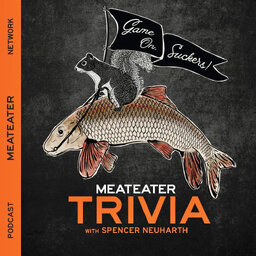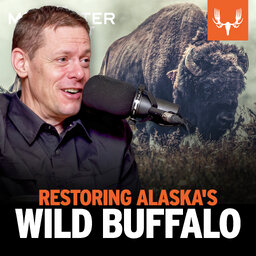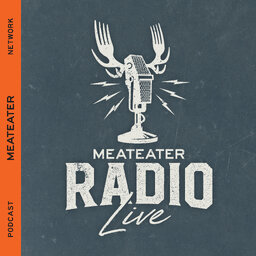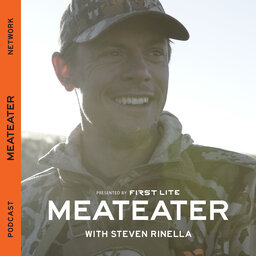Ep. 620: Tribal Rights and Feral Horses on Wind River
Steven Rinella talks with Arthur Lawson, Renee Lawson, Brody Henderson, Randall Williams, Corinne Schneider, and Phil Taylor.
Topics discussed: An inter-tribal arranged marriage; pre-chewed meat, the epidemic of food pouches, and weak jaws; drinking mother’s milk and a way to have cannibalism that isn’t bad; when a mysterious religious group squats on public land and erects a fence up; watch MeatEater's new series, "Rough Cuts" on the Outdoor Channel or MeatEater’s YouTube channel; hunting on Wind River reservation for tribal members only; tribal ID cards and blood quantum; how tribal lands are still considered war zones by the federal government; the Feral Horse and Burrow Protection Act; Wind River as the first reservation that created a wilderness area; getting your impounded horses back; bringing the buffalo back; getting tribal youth involved; and more.
Connect with Steve and The MeatEater Podcast Network
In 1 playlist(s)
The MeatEater Podcast
Building on the belief that a deeper understanding of the natural world enriches all of our lives, h…Social links
Follow podcast
Recent clips

Ep. 824: Game On, Suckers! MeatEater Trivia CC
46:16

Ep. 823: Restoring Alaska's Wild Buffalo
2:03:45

Ep. 822: Public Lands and Weird Headlines | MeatEater Radio Live!
1:14:41
 The MeatEater Podcast
The MeatEater Podcast